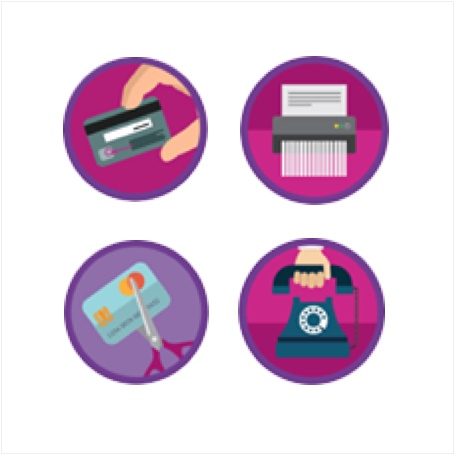How to keep your identity secure while using the World Wide Web

The Internet has become an undeniably invaluable tool that most Canadians use on a daily basis. However, with more and more people logging on to the World Wide Web, there has been an increased risk of identity theft. Characterized as when someone knowingly gains access to and utilizes personal information such as credit card numbers, social security numbers, or your name for their own use, it's estimated that identity theft costs the likes of banks, consumers, and credit card firms some $2.5 billion per year1.
Once you’re aware of the risks, it’s easy to avoid becoming a victim of identity theft. Here are some tips to keep your information safe when you're surfing the web:
Practice caution on public WiFi networks
You can access the Internet just about anywhere these days and it's common for people to access the Internet from coffee shops, restaurants, the airport, etc. But if you're not using a secure, trusted connection - such as the one that should be in your home – be careful of your online behaviour. In most cases, public WiFi networks are not secure, thereby allowing hackers the opportunity to gain access to your personal information if you make an online order, log into your bank account, or even just log into your email.
Use double verification
While not always convenient, using double verification to access your Google account or your PayPal account can enhance its security. Double verification will permit you to log in from the computer and also submit a code that's sent to your phone. It can help guard against phishing.
Switch up your passwords
For convenience's sake, you may have the same password to log into your bank account, for your email, for Facebook, for your credit card, etc. Be sure that these passwords are all different and not easy to guess (i.e. "1234"). Why? Because if a hacker were to crack your password to one account, they'd then have access to all your accounts if the passwords are consistent across the board. When choosing a password, make sure it's a combination of characters, numerals, and special characters.
Keep an eye out for spam emails
Phishing campaigns are attempts to steal your personal information. They usually are sent via email, asking the user to click on an attachment or submit their social security number by clicking on a link. Many will disguise themselves as your bank to get this information. The bottom line – while most email platforms are good at weeding out spam, if an email looks fishy, it probably is. Just delete these emails and never give your personal information out to a suspicious source.
Shop only on secure websites
Always look for the little padlock at the top left of your screen, next to the URL when shopping online. If it's there, that's the sign of a secure website. If it's not, proceed with caution. Any website that's not reputable could put you at risk.
Don't share personal info on social networks
You don’t want give potential thieves any help when it comes to your identity. You should stay away from posting personal information on your social networks like Facebook and Twitter. Turn off GPS tracking technology on these networks, make sure your profiles are set to private, and only accept friends and followers that you know and trust.
Identity theft may be on the rise, but by taking the proper precautions, you can enjoy the World Wide Web worry free. Talk to your insurance provider to see if you are covered from identity theft. If you’re a Johnson Insurance homeowner policyholder and you find your identity has been stolen, you may be insured for up to $30,000 so you can concentrate on getting back on track.*
-
*Home policies underwritten, and claims handled, by Royal & Sun Alliance Insurance Company of Canada (“RSA”) in Quebec and primarily underwritten, and claims handled, by Unifund Assurance Company (“Unifund”) in the rest of Canada. Described coverage and benefits applicable only to policies underwritten by Unifund or RSA. Johnson, RSA and Unifund share common ownership. Eligibility requirements, limitations, exclusions or additional costs may apply, and/or may vary by province or territory.
- 1- http://mbc.app.bbb.org/tips?id=104
Identity theft is on the rise in Canada. Follow these simple…
Find the right coverage for your needs with Johnson Insurance.



